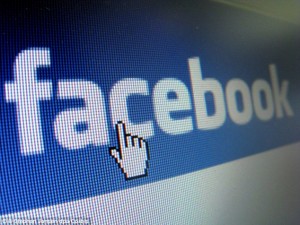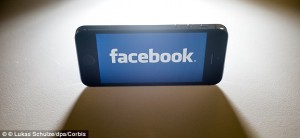
Why you can’t quit Facebook
If you’ve ever thought about permanently leaving Facebook, you’re not alone.
Last year, an online campaign invited Facebook users to log out of the site for 99 days and complete surveys about their moods every 33 days.
Researchers discovered four themes from these surveys that show why we keep coming back, even if we swear we’ve had enough.
Cornell University analyzed more than 5,000 surveys to understand what keeps people connected to a social media site they plan on leaving.
The act of leaving social media and then returning is called, ‘social media reversion’, according to Eric Baumer, the lead researcher in the study, and the rest of the team.
Using data provided by 99daysoffreedom.com, the researchers were able to specifically target individuals who willing pledged to distance themselves from the site,because they can’t do it on their own.
By studying this information the group found four main facts that led to them returning.
The first being perceived addiction, which is for those who feel they are addicted to Facebook, or habitual, are more likely to return after a hiatus.
One participant described this habitual aspect by saying, ‘In the first 10 days, whenever I opened up an internet browser, by fingers would automatically go to ‘f’.’
The second is privacy and surveillance, which indicated users who felt their activity on the site was being monitored were less likely to revert.
And those who use Facebook to know more about how people think of them and also manage it where more likely to sign back in to their accounts.
Another reason showed that individuals who were in good moods stood strong with their pledge to stay off mood, which reveals how much we use Facebook depends on what kind of mood we’re in.
The final theme the group found was that Facebook users are less likely to log back in if they have other social media outlets to visit.
Those who reflected on the appropriate role for technology in their social lives were more likely to revert.
In many of these cases, people returned to Facebook, but changed the way they used it like deleting the app from their phones, ‘unfriending people or limiting the amount of time they spent scrolling through the site.
These findings were made from analysing more than 5,000 surveys that were issued to participants by Just, the Dutch creative agency that founded 99 Days of Freedom project.
‘These results show just how difficult daily decisions about social media use can be,’ said Baumer. ‘In addition to concerns over personal addiction, people are reluctant about corporations collecting, analyzing and potentially monetizing their personal information.’
‘However, Facebook also serves numerous important social functions, in some cases providing the only means for certain groups to keep in touch.’
‘These results highlight the complexities involved in people’s ongoing decisions about how to use, or not use, social media.’










